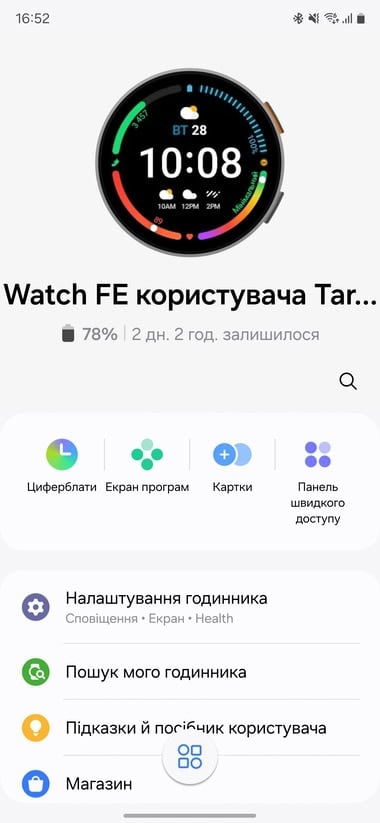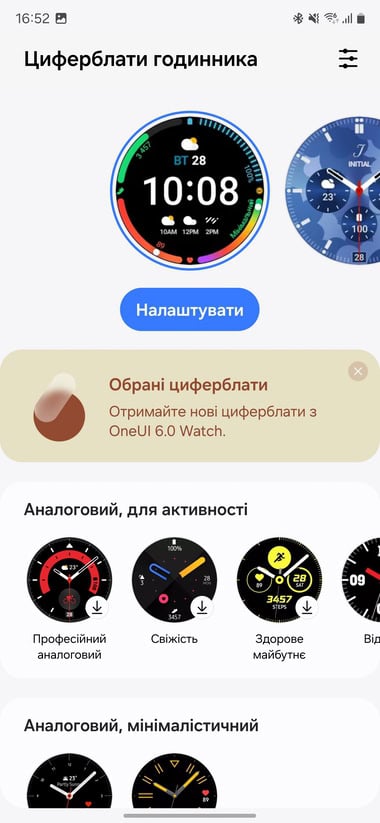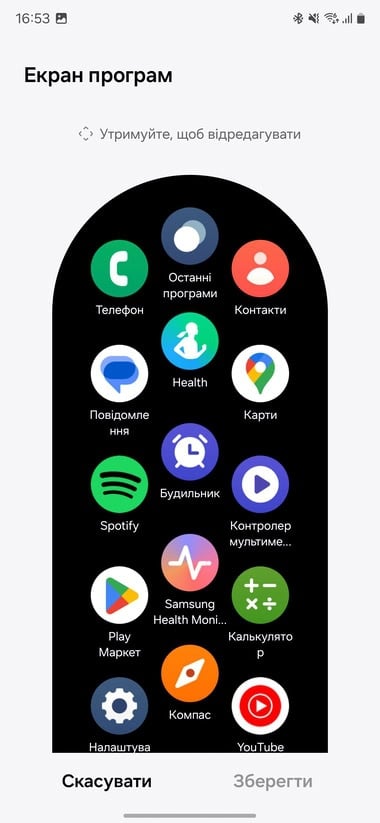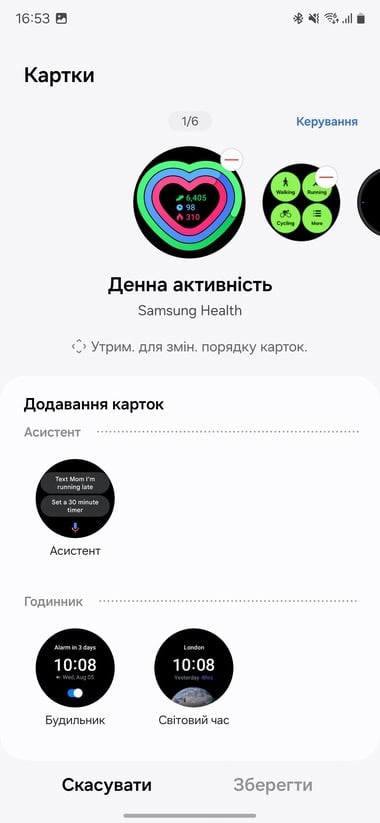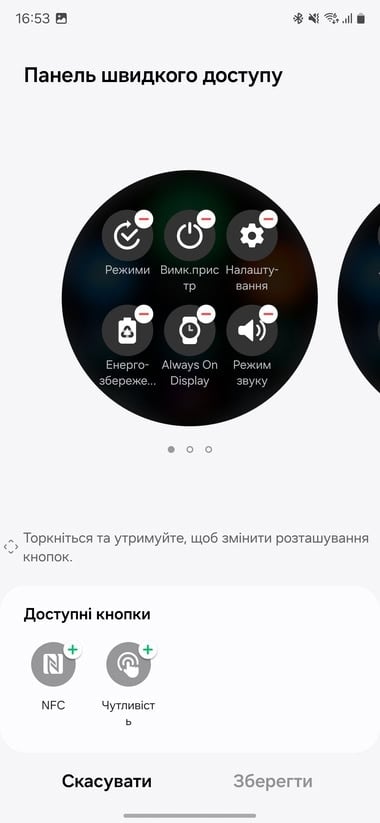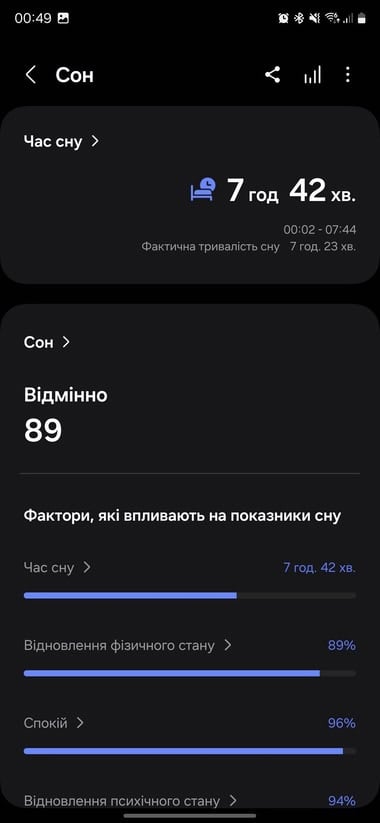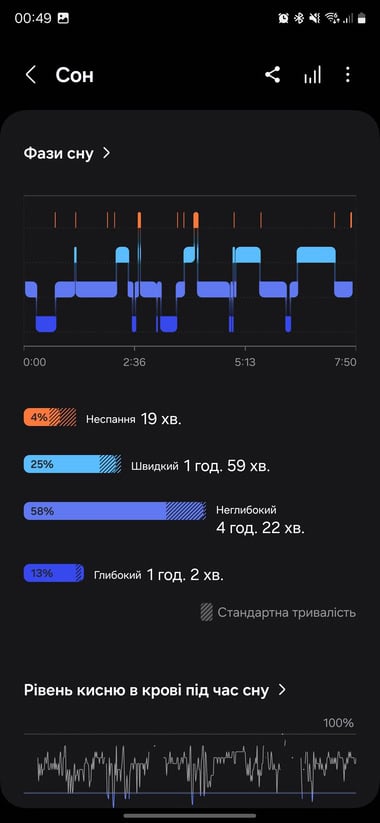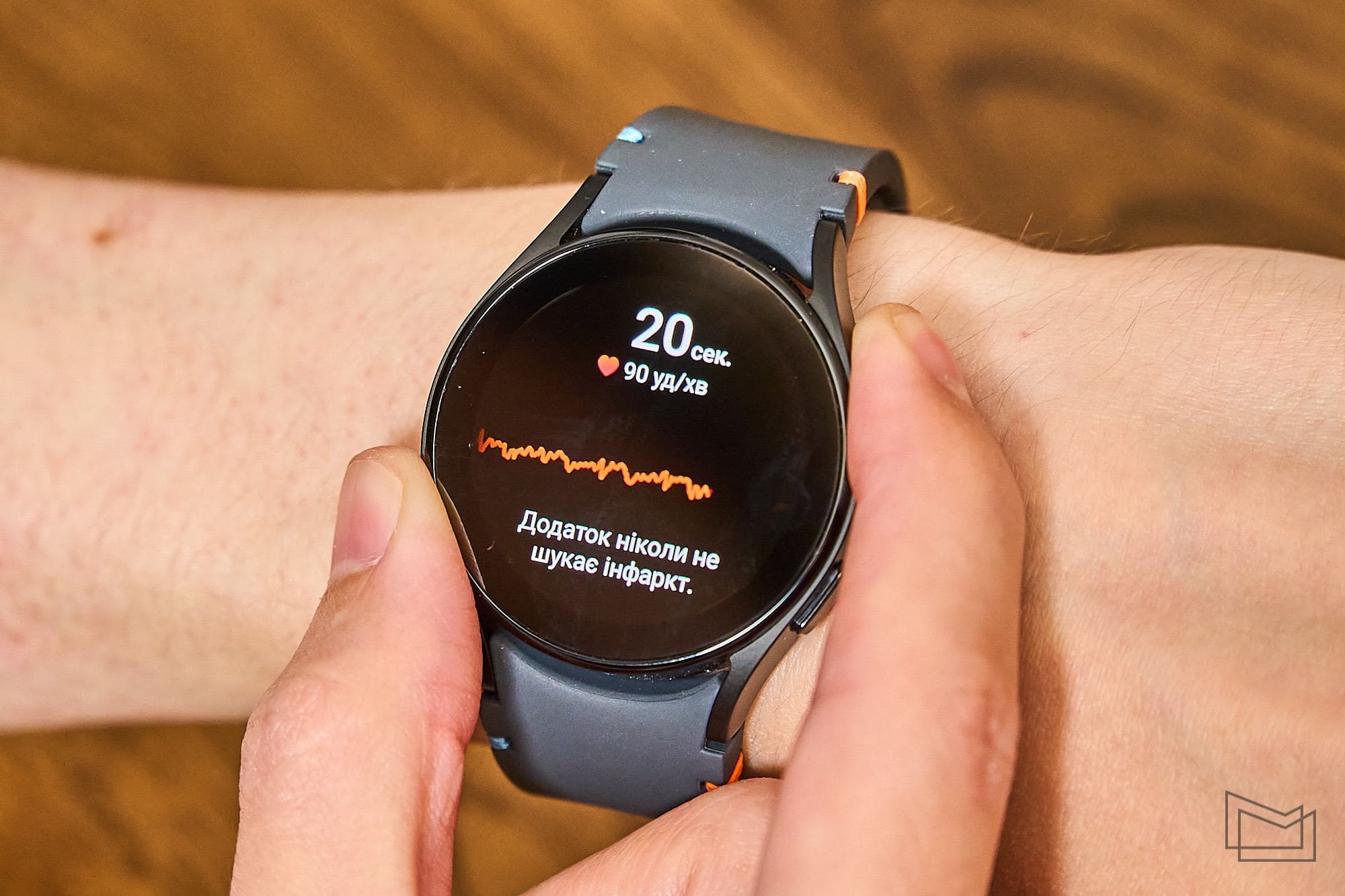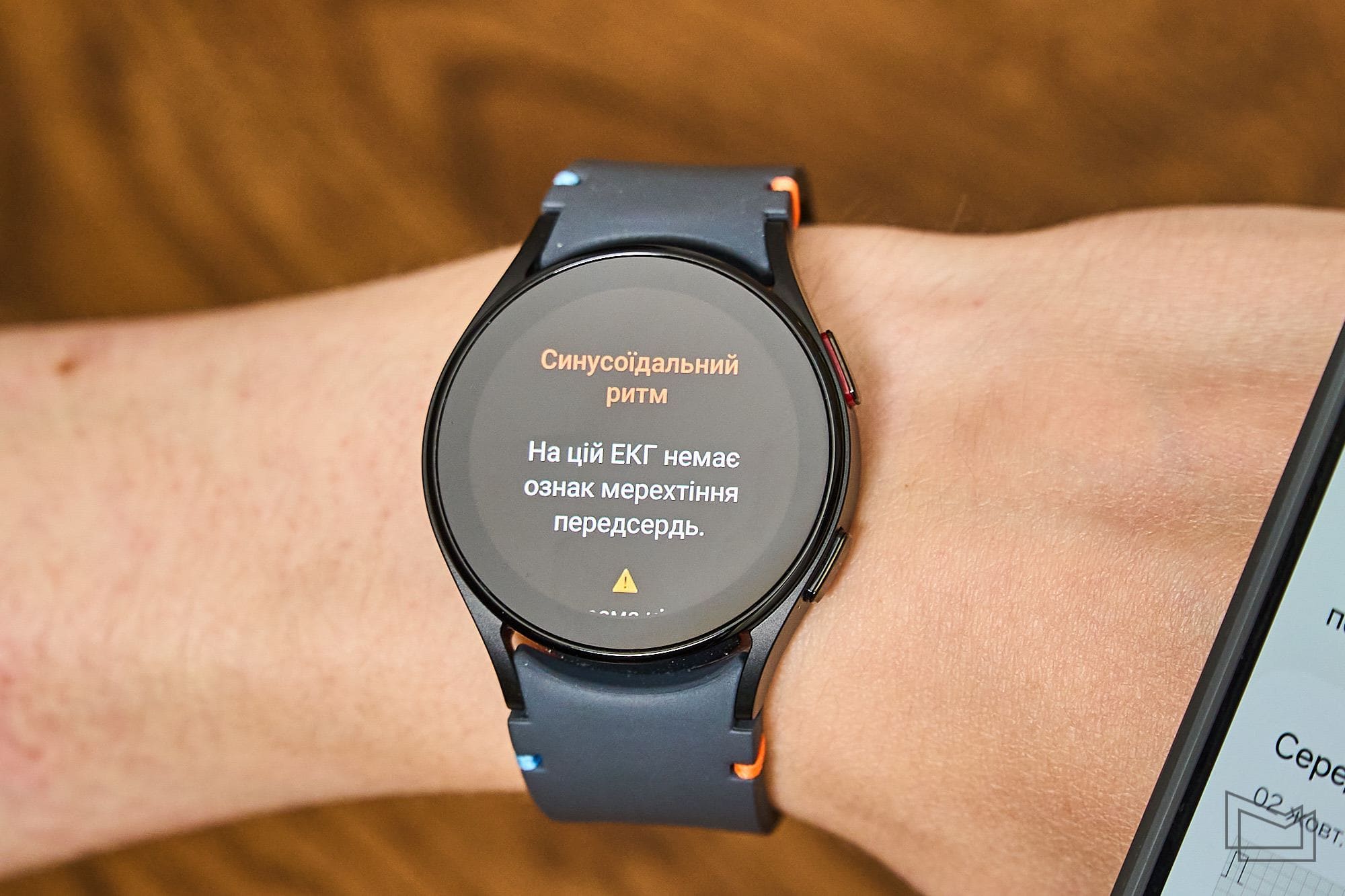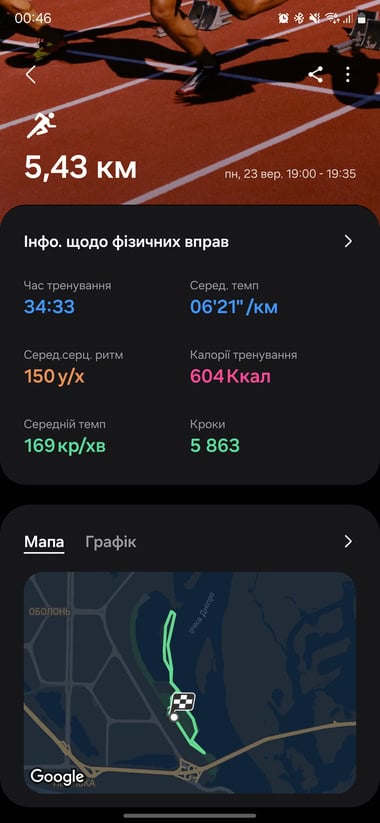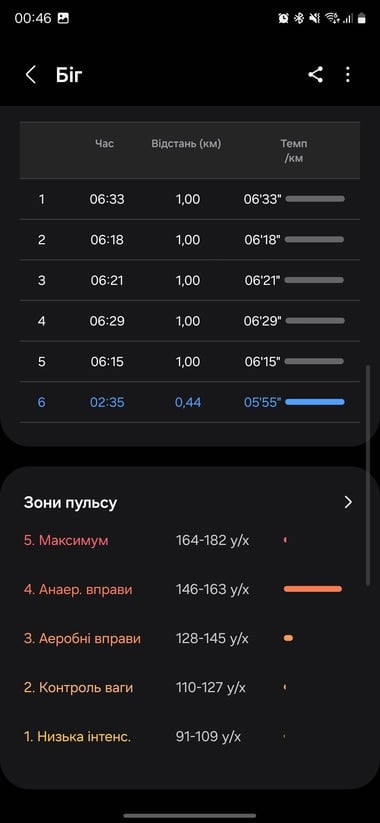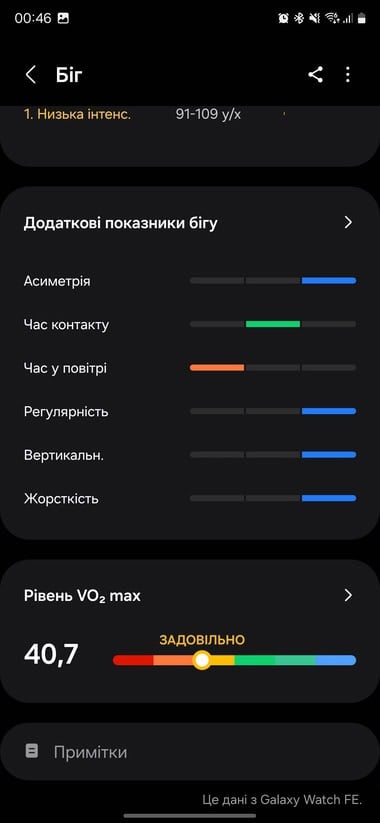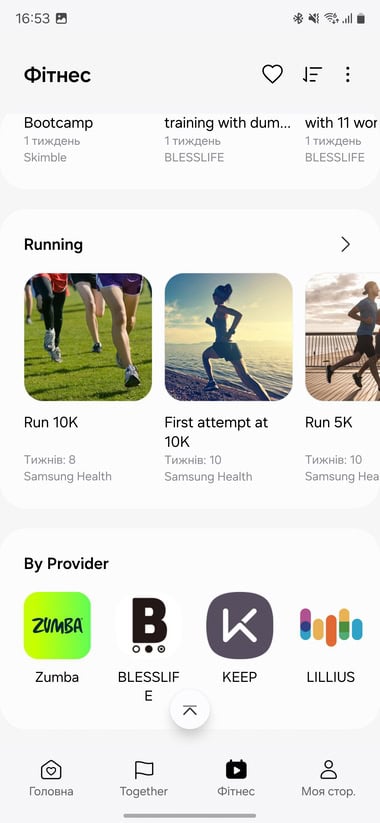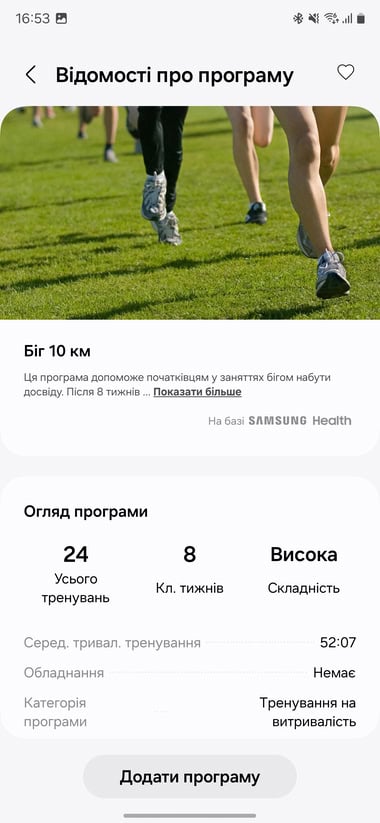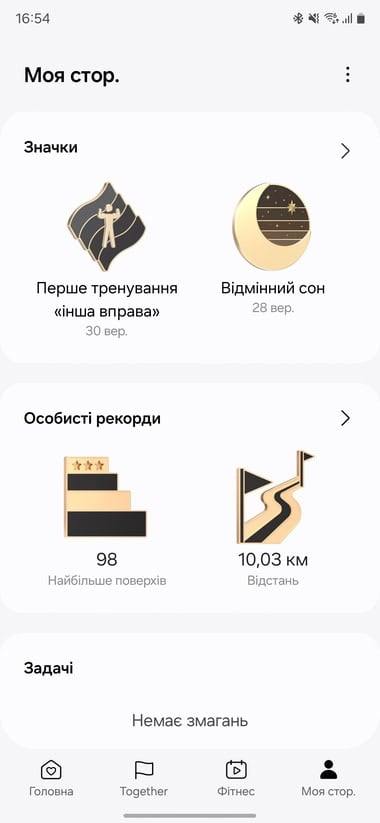Samsung has significantly updated its smartwatch lineup this year, expanding it for the first time with the more affordable Galaxy Watch FE. With a 40 mm case and a design similar to the older versions, it is an entry-level option for those who want to try a smartwatch in the Samsung ecosystem. I will tell you how successful this model is and what it can offer users in this review.
Galaxy Watch FE specifications
| Materials and color | Aluminum, sapphire glassChornyi, Rozheve gold |
| Dimensions and weight | 39.3 x 40.4 x 9.8 mm, 26.6 grams |
| Display | 1.2-inch with a resolution of 396×396 dots, Super AMOLED touchscreen, Always On Display, peak brightness 1000 nits |
| Processor | 2-core Exynos W920 with a frequency of up to 1.18 GHz |
| Memory | 1.5 GB of RAM and 16 GB of internal storage |
| Battery | 247 mA⋅ year |
| Charging | Wireless charging WPC |
| Operating system | Wear OS 4 with One UI Watch 5 interface |
| Sensors | Samsung BioActive Sensor (optical heart rate + electrical heart signal + bioelectrical impedance analysis), accelerometer, barometer, gyroscope, geomagnetic sensor, light sensor |
| Connection | Bluetooth 5.3, Wi-Fi 802.11 a/b/g/n 2.4+5GHz, NFC, GPS /Glonass/Beidou/Galileo |
| Protection | 5ATM + IP68 / MIL-STD-810H |
| Compatibility | Android version 11.0 or higher, and more than 1.5 GB of RAM |
| Recommended price | 7 999 UAH |
Package contents
The watch comes with a silicone strap and magnetic charger.
Design and materials
The model offers a classic Galaxy Watch design with a round aluminum case and a round 1.2-inch display that covers a flat sapphire crystal.
It's nice that Samsung didn't skimp on materials, so the Galaxy Watch FE should be able to withstand active use. At least, sapphire crystal is harder to scratch than tempered mineral glass.
In addition, the model's body is IP68 water and dust resistant, 5 ATM waterproof, which allows it to be submerged to a depth of 50 meters, and certified according to the military standard MIL-STD-810H.
For its basic smartwatch, Samsung chose a single case size of 40 mm, so we have a fairly compact model with dimensions of 39.3 x 40.4 x 9.8 mm and weighing only 26.6 grams. This makes the Galaxy Watch FE a good option for children and teenagers. The result is a sturdy watch with a nice design that is almost invisible on the wrist.
The Galaxy Watch FE uses a standard 20 mm pin to attach the straps, and Samsung has slightly improved this mechanism by adding separate buttons to the strap to make it easier to remove. However, users can use any 20 mm strap.
Display, platform and functionality
The watch has a 1.2-inch Super AMOLED touchscreen display with a resolution of 396×396 pixels and support for the always-on screen function. The peak brightness of the display reaches 1000 nits, and there are no problems with using it outdoors in bright sunlight. Overall, it's a small but pleasant to use matrix with excellent viewing angles and vivid color reproduction.
Since the Galaxy Watch FE is a basic solution, the manufacturer used one of the previous generations of the platform, namely the 2-core Exynos W920 chip, which operates at a frequency of up to 1.18 Hz, has 1.5 GB of RAM and 16 GB of internal memory. The processor's performance is enough for comfortable work, it provides relatively smooth interface navigation and fairly fast program launch, which is not surprising, since only a couple of years ago, Exynos W920 was used in the flagship Galaxy Watch5 Pro.
The watch has an advanced set of sensors, including a BioActive sensor (optical heart rate sensor + electrical heart rate sensor + bioelectrical impedance analysis), accelerometer, barometer, gyroscope, geomagnetic sensor, and light sensor. The difference from older models of Samsung smartwatches is the absence of a temperature sensor and analysis of such an indicator as Advanced Glycation End Products (AGEs). I'll talk more about the health tracking capabilities of the Galaxy Watch FE later. In the meantime, I'd like to note that the watch also has support for GPS, GALILEO, GLONASS, and BDS systems for location.
The Galaxy Watch FE uses Bluetooth 5.3 to connect to a smartphone, and the watch also supports Wi-Fi 4, as well as NFC for contactless payments via Google Pay. Samsung recently announced a version of the model with LTE, but it is not yet known whether it will be sold in Ukraine. I hope so, because this will make the Galaxy Watch FE one of the best deals for parents looking for a functional, and most importantly, compact watch with the ability to make calls. After all, most children's watches are sad to look at, and they often cost not much less than the Galaxy Watch FE.
This model works with any Android smartphone with Android 11.0 or higher and requires at least 1.5 GB of RAM. However, the easiest connection and best integration will be with Samsung smartphones, which start "seeing" the watch as soon as it is turned on and offer to connect to it.
The proprietary Wearable app is used to customize and update the Galaxy Watch FE. It actually duplicates all the options from the watch itself, so the user can change watch faces, customize widgets, install apps, change settings, and much more on the smartphone.
The watch runs on Wear OS 4 with the proprietary One UI 5 Watch interface. This is not the latest version of the system and shell from Samsung, but with the exception of some animations and additional widgets, the user will hardly be able to tell the difference. The logic of the interface has remained unchanged in Samsung watches for many years, so we can safely say that it is well established and does not require a long getting used to. It's actually one of the most logical interfaces you'll see in a smartwatch.
Given that Wear OS 4 allows users to install third-party apps and watch faces from Google Play, they can expand the capabilities of their watch by adding music listening apps like Spotify or YouTube Music, Google Keep notes, sports utilities like Strava or Nike Running Club, and much more. Google's support for the system allows you to significantly expand the capabilities of your watch.
Health, sleep and sports tracking
Despite its basic status, the Galaxy Watch FE utilizes a wide range of tools that allow the user to track their health. From basic things like counting steps, minutes of activity, and calories burned to detecting atrial fibrillation.
Basically, the watch analyzes the user's physical activity and, taking into account their height and weight, suggests walking a certain number of steps per day, reminds them to get up, and counts the number of calories they burn. An important parameter for those who want to lose weight and count the number of calories in food.
In addition to basic physical activity, Galaxy Watch FE can also track sleep, recording its phases and quality. The watch even offers a sleep trainer that will encourage you to go to bed earlier in a playful way. The model also has the ability to create alarms that will be triggered by a slight vibration on the wrist, but they do not take into account sleep phases.
The Galaxy Watch FE uses the BioActive sensor to measure heart rate and blood oxygen saturation, which can also detect body composition, blood pressure, and can perform an ECG to detect atrial fibrillation.
The watch is not a medical device, so the data from it is for guidance only. At the same time, when it comes to measuring heart rate and determining body composition, the BioActive sensor in Galaxy Watch FE works no worse than in Galaxy Watch Ultra. There are differences in performance, but they are not very large.
To keep track of your sports activities, Galaxy Watch FE has a whole set of programs with more than 100 workouts, from aerobics to yachting. If the exercise you need is not on the list, you can create it yourself, just like you would create your own workouts at the gym. For most sports, the watch tracks basic metrics such as exercise time, heart rate, and calories burned. However, for running, cycling, and swimming, there are many more measurements.
For example, the Galaxy Watch FE determines how well a person is running, taking into account asymmetry, the time the sneakers are in contact with the surface, the time the feet are in the air, and the regularity of movements. In addition, the watch is able to determine the maximum oxygen consumption during training, VO2 max.
Overall, despite the fact that the Galaxy Watch FE is an entry-level model in Samsung's lineup, it has a good set of sensors that allow you to effectively monitor your activity, heart rate, sleep, and sports.
All data collected from the watch is synchronized with the free Samsung Health app, which has a user-friendly interface. I like the company's approach to encouraging users to move more by organizing monthly competitions.
A very underestimated feature of Samsung Health, in my opinion, is the absolutely free access to a large number of workouts and video instructions that allow you to both keep fit and achieve better sports results. For example, there are workouts that allow you to run 5, 10 kilometers, or a half marathon. Such opportunities are increasingly hidden behind a paid subscription, as this allows you to increase profits, so it's nice that Samsung keeps training open to all users.
Battery life
Given the size of the case, the manufacturer managed to fit a 247 mAh battery in the Galaxy Watch FE, the autonomy of which depends on use. With the screen always on, step tracking, and heart rate measurement every 10 minutes, the watch lasts about 27 hours, which is more than one full day. If you turn off the always-on screen, keep all the same physical activity tracking options, and add a 5 km run with GPS, the battery life will be 39 hours. These are pretty good results for modern Wear OS smartwatches.
With the included magnetic charger, Galaxy Watch FE charges from 1 to 100% in almost 2 hours.











